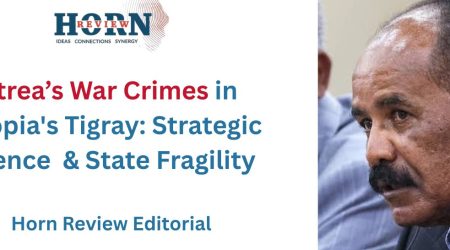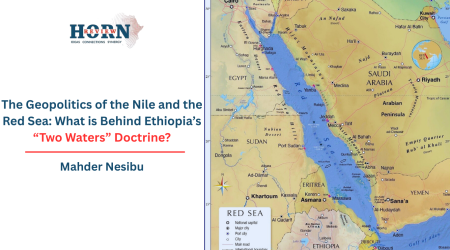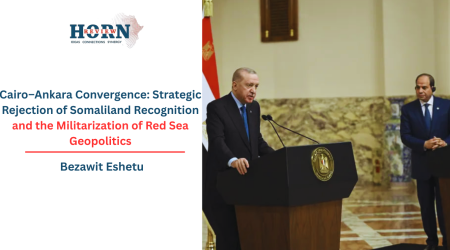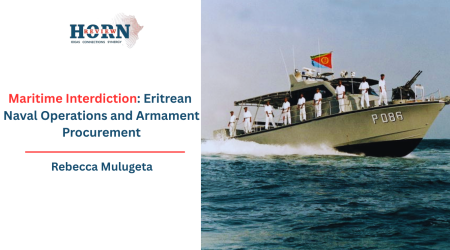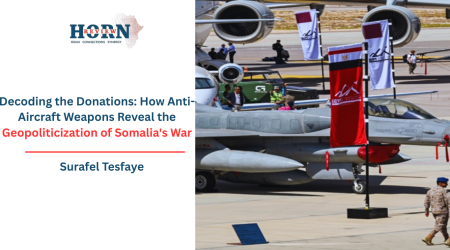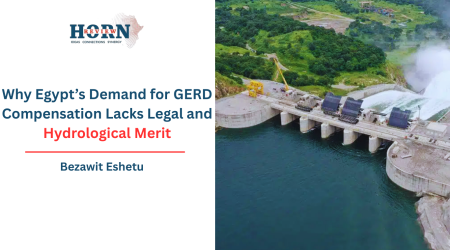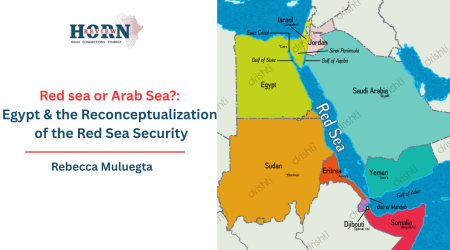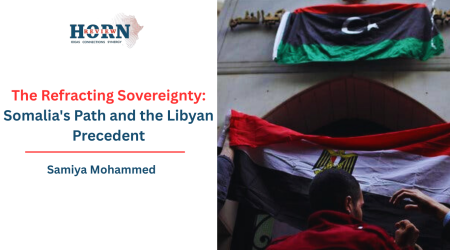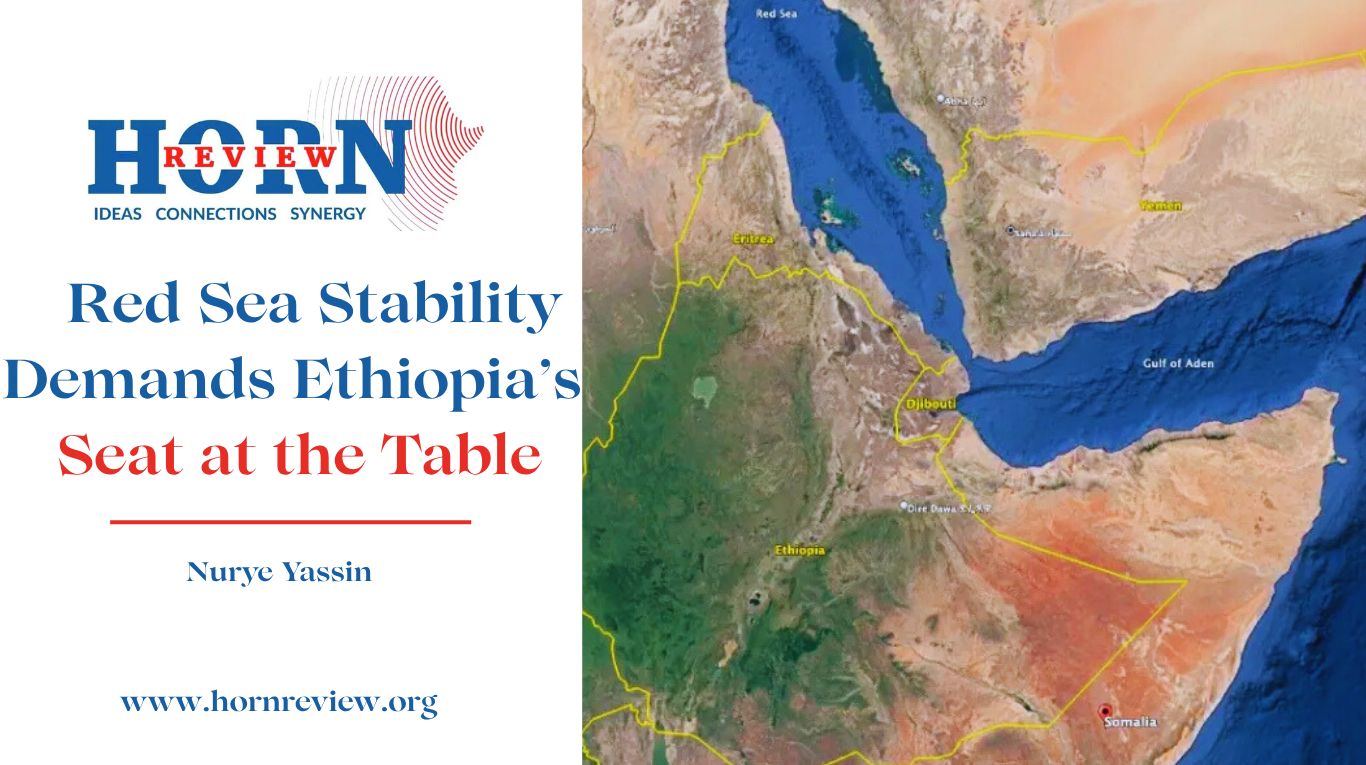
4
Nov
Red Sea Stability Demands Ethiopia’s Seat at the Table
As one of the vital regions of the world, the Red Sea is experiencing geopolitical and geo-economic shocks arising from the changing international distribution of power and fraying international order. These changes present strategic opportunities and strategic risks. Investing on an inclusive and open regional architecture for dialogue and cooperation is of great value for the countries of this strategic region to survive the intensified global power competition, calm the waters of the Red Sea and create a shared Red Sea economic and security zone.
However, Egypt’s geostrategic design for the Red Sea seeks to make rivalry the rule that will take the region for further destabilization. Egypt continues to divide the broader Red Sea region on the basis of “bordering” and “non-bordering” countries of the Red Sea. Egypt intensifies its coordination with Eritrea to rewrite the geography, governance and future of the Red Sea without Ethiopia. Defining the Red Sea as an extension of coastal states, Egypt promotes that the coastal states should only be forge Red Sea governance architecture denying Ethiopia’s historicity, presence, agency, autonomy, and interest in shaping the future of the water strip critical for its survival, security and prosperity.
The idea of Red Sea for coastal/littoral states require rethinking as it advances the monologic conceptions of closed regionalism, group politics, unilateralism over the polylogic ideas of open regionalism, “rules of all” as well as multilateralism. The idea of the Red Sea governance for coastline countries of this water strip deliberately omits the presence and core interests of the riparian countries of the Red Sea, including Ethiopia, South Sudan, Oman, Israel and UAE. It also denies the rights of all, including middle and major countries, to this vital artery for their trade, energy, transportation and security interests.
Egypt’s Red Sea Vision: Decoupling Ethiopia from the Broader Red Sea
Egypt has been the brain behind the framing of the Red Sea through the prism of littoral-centrism when the Council of Arab and African States Bordering the Red Sea and Gulf of Aden was formed in 2020 in Riyadh. Despite Saudi Arabia’s constructive efforts to restore normalization between Eritrea and Ethiopia and rehabilitate the Ports of Massawa and Assab for linked to its Jizan and Jeddah Ports under the Jeddah Peace Agreement, Eritrea opposed the membership expansion of the Council, which was conceived to secure and develop the broader Red Sea. Eretria together with Egypt rejected the very idea of including Ethiopia even on the basis of observer status–blanking Ethiopia from the shared economic and security zone of the wider Red Sea.
This narrative aimed at expelling Ethiopia from the seas is rooted to Egypt’s domineering geopolitical grammar and vocabulary of hegemonism, expansionism and sphere of influence over the Nile and Red Sea basins defining its foreign and national security policy establishment. The establishment promotes bloc mentality in re-graphing the “geo” of the Red Sea as a divider between the littoral and non-littoral states to ostracize Ethiopia’s participation from the maritime space. This shows the fact that the Egyptian leadership addresses the Nile and the Red Sea with the monocentric norms, rules, and architecture of the few over the pluricentric regionalism open for greater representation.
This signals Egypt’s motive in embroiling Ethiopia in perpetual underdevelopment and insecurity. Burying Ethiopia deep in the dungeons of insecurity and underdevelopment is regarded as safeguarding the cause of Egypt’s security and prosperity. Through this brinkmanship wedded with local collaborators, Egypt has greatly contributed in delinking Ethiopia from the Red Sea and making this essential state sail without any coast for three decades.
For several decades, Egypt has been deeply engaged in making the Horn of African states as footnotes with the objective of making them its exclusive foreign policy and geostrategic zone of influence. It has attempted to leverage the African side of the Red Sea as a front to severely isolate and weaken Ethiopia. It also continues to make the countries of this strategic region of the world to subscribe to its regional agenda—to collectively strangulate and decouple Ethiopia from the seas.
While seeking to make the Horn an accessory in its regional project of weakening Ethiopia, Egypt had made an all-encompassing effort in maintaining its regional primacy over North East Africa. This Egyptian stratagem stoked division; antagonized Ethiopia with its neighbors; and made the region suffer the “hot wars” in what was called the cold war period. This has continued in the post-cold war era turning the region into a geostrategic wasteland in international affairs.
Again, Egypt’s aggressive posture towards Ethiopia defining its orientation to global and regional affairs is being undertaken to exclude Ethiopia from its leading role in conflict resolution, mediation, peacekeeping, energy and power trade, green diplomacy, and integrated development efforts in the region.
Despite the weakening, fragmentation and failure in seizing the momentum of the bygone era, the Horn of Africa region comprising its resilient, daring and entrepreneurial people, has survived the geopolitical maneuvers. Now, the Horn of Africa cannot afford to lose the momentum in a contested and fractured world order from turning its strategic location, strategic resources, demography and markets into strategic advantage for growth and autonomy.
A Geopolitically Reawakened Ethiopia: Pivoting to the Broader Red Sea
Ethiopia, which has forgotten geography for the last three decades, is looking at its physical realities. It unapologetically regards geography as, to use the words of Professor Ali Mazrui, the mother of history defining threats and opportunities. While basing its international policy on, to mimic Professor Mesfin Woldemariam, the Two-Waters—the Nile River and the Red Sea, Ethiopia approaches the messy international affairs with multiple partnership and pragmatic humility in a balanced and principled way of doing diplomacy making autonomy central in its international policy and external relations.
Ethiopia cannot bury itself in the hinterland as the situation in the Red Sea moves in the direction of more disruption, militarization, and multiplying crises placing its survival at risk. Ethiopia has come to a point where its security and prosperity cannot be safeguarded without a coast as the situation in the Red Sea gets more complicated and disordered. Ethiopia’s exclusion from the emerging political and security governance arrangements in the Red Sea is equal to its erasure from the geo-epistemic, geo-political and geo-economic climate of the broader Red Sea.
What has been unspoken is now cogently spoken and communicated with the outside world to reclaim Ethiopia’s sovereign access to the sea adopting a posture of strategic calm, patient diplomacy, dialogic partnership, and indivisible security. Ethiopia is constructively engaging the world to comprehend its maritime vulnerability, work for the maritime stabilization, and create a maritime space for collective security and prosperity. Meaningfully addressing Ethiopia’s access to the sea creates a room for all to partake in re-fashioning a new model of Red Sea governance grounded in reason, fairness, openness and cooperation. Ethiopia’s goal is not to dominate but to co-habit and co-humanize the Red Sea and turn the wider region into a collective Red Sea community.
However, Egypt together with Eritrea falls back to the imaginary abstraction of framing the Red Sea through the lens of “Arab Lake”. This is contrary to the geo-political, geo-economic and geo-socio-cultural history and contemporary reality of the Red Sea as a bridge builder between Arabia and Africa. In fact, the Red Sea is now an Afro-Arab sea making cooperation an imperative for economic diversification and modernization of the two brotherly regions. This has been made clear by existing and emerging platforms of cooperation between Africa and Arabia, including Africa-Arab Summit, IGAD-GCC Consultation and Saudi-Arab Summit frameworks.
Besides the Red Sea, Egypt clings to what was called the imaginary “rights” of the colonial past and refuses to adjust itself in a world that has fundamentally changed. Indeed, the region sees a geopolitically reawakened Ethiopia with strong resolve, regional vision and resilient leadership adjusting itself with the geopolitical rebalancing of the world and making breakthroughs in all domains of national life from food, energy, connectivity, military modernization to smart green, sci-tech and digital economy.
Ethiopia has shown the region and Africa on how to survive perpetual geopolitical hostilities, develop an independent thought and action, and stand as a beacon of independent development in Africa and beyond. While recently inaugurating the Grand Ethiopian Renaissance Dam (GERD), Ethiopia has made an economic Adwa in Guba. It is meant for shared prosperity changing the geopolitical reality of the continent and making GERD and the Nile River as regional connecters for African integration and modernization.
Moreover, unlike Egypt stuck in the colonial moment, Ethiopia along with the countries of the Nile Basin makes strides in liberating the Nile from obsolete claims of the colonial enterprise while re-organizing the hydro-politics with the principle of fair and reasonable utilization of the resources of the Nile. Guided by the fine tradition of Pan-Africanism, multilateralism, fairness, and reason; and sustained by the promising tomorrow, the Nile Basin countries are making notable progress for the speedy operationalization of the Nile River Basin Commission (NRBC) to govern the development and management of the waters of the Nile River.
Nevertheless, Egypt observing the regional complete paradigm shift sees obstacles and again now shows to the world that the Nile and Red Sea as dividers. This framing does not make peace with the evolving reality. The strategic coordination headed by Egypt to decouple Ethiopia from the sea undermines the regional peace and security with global ramifications. Equally, the governance architecture of the Red Sea taking a littoral character aimed at cornering Ethiopia from the seas complicates the already troubled Red Sea region.
Ethiopia’s Red Sea Vision: Building a Sea of Shared Afro-Arabian Community
Ethiopia views the Red Sea as a shared Afro-Arab trans-regional space with its political, security and economic governance managed by not only bilateral mechanisms but also by inclusive and common multilateral arrangements to enhance cooperation on regional peace, stability and prosperity.
Furthermore, Ethiopia strives to make sure that regional political and security, governance and socio-economic cooperation of – Red Sea and Gulf of Aden– is supported by inclusive multilateral arrangements engaging all sides, including riparian and immediate shoreline states.
Moreover, Ethiopia stresses that the multilateral maritime landscape of the Red Sea security should transition from the littoral phase to the wider Red Sea basin taking inclusivity as its organizing principle so as to make these multilateral platforms sustainable and achieve sustainable peace and development.
In addition, the Council of Arab and African Coastal States of the Red Sea and the Gulf of Aden would serve its intended strategic goal if it includes Ethiopia into its platform to make itself relevant in the becoming of a new regional order and turn this maritime region into a shared Afro-Arabian space aligning the security and economic security interests of all.
What is more, Ethiopia together with the IGAD and the AU is ready to explore the potential synergies between the IGAD Red Sea Taskforce and the Red Sea Council for greater maritime security, connectivity and commerce.
Besides, Ethiopia is eager to strengthen IGAD-GCC consultation and deepen strategic cooperation with Gulf Arab states, including Saudi Arabia and the United Arab Emirates, to enhance regional economic cooperation and safeguard regional peace and security in the wider Red Sea region. Ethiopia also is keen to partner with Gulf Arab states so as to promote the representation, interest and voice of countries of the Horn and the Gulf in global governance institutions.
In sum, the calculus and praxis of the Red Sea governance architecture should be forged with and grounded on the principle of inclusion rather than erasure that will help the two regions leverage the potentials for greater Afro-Arabian cooperation making way for the building a Red Sea community.
By Nurye Yassin, Researcher on Horn-Gulf Relations

